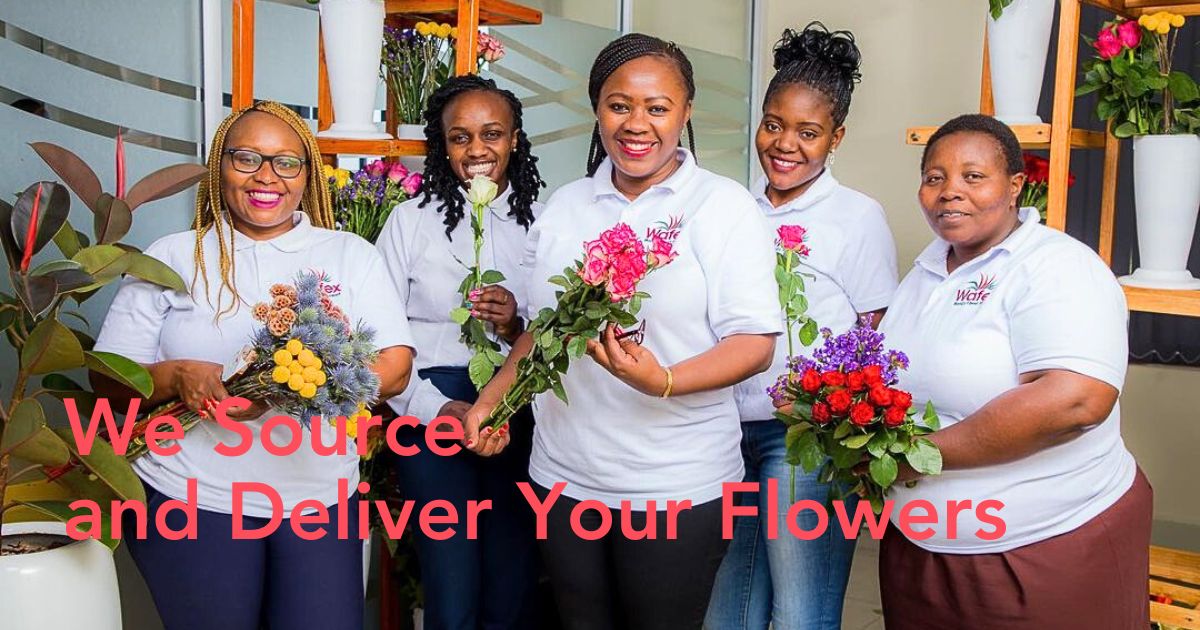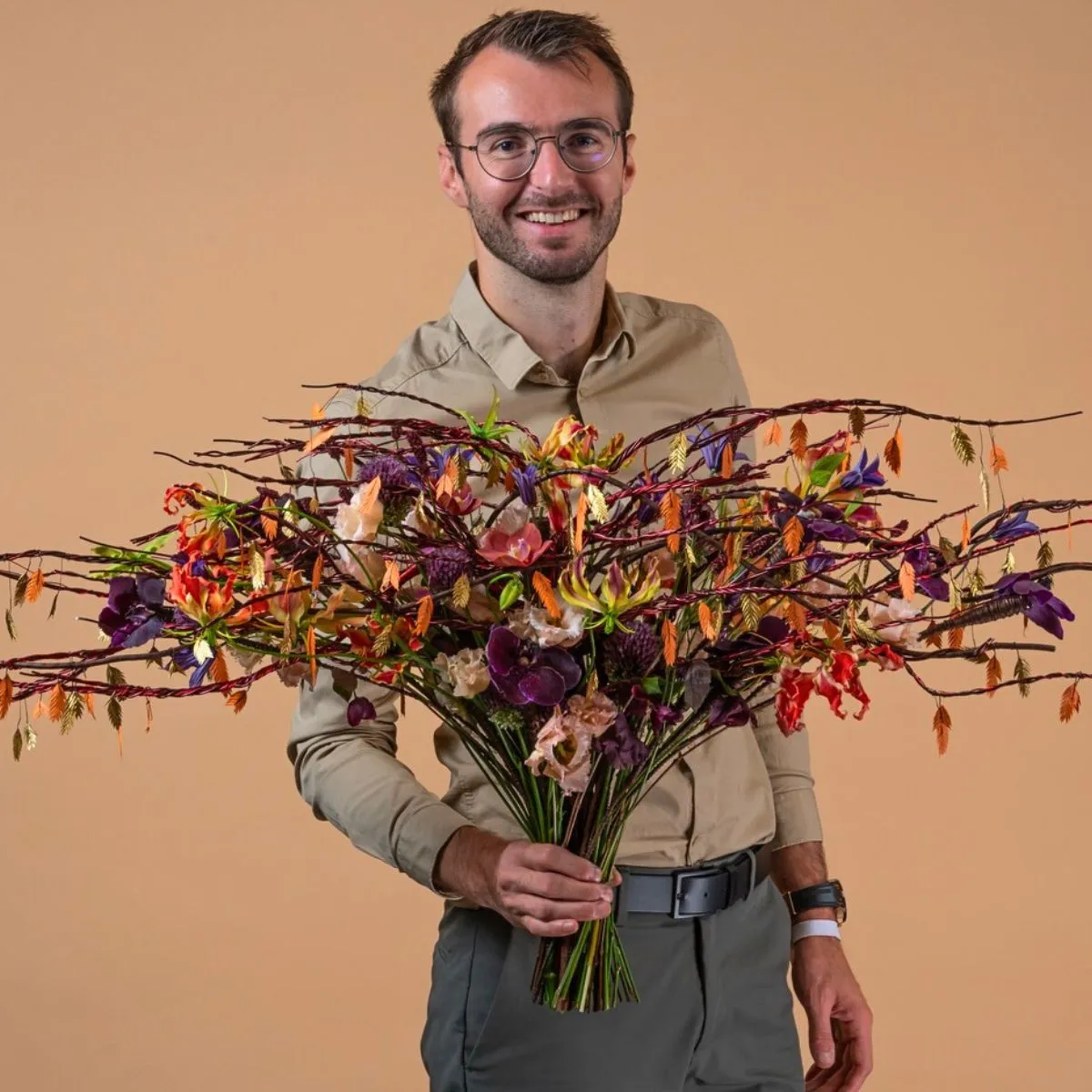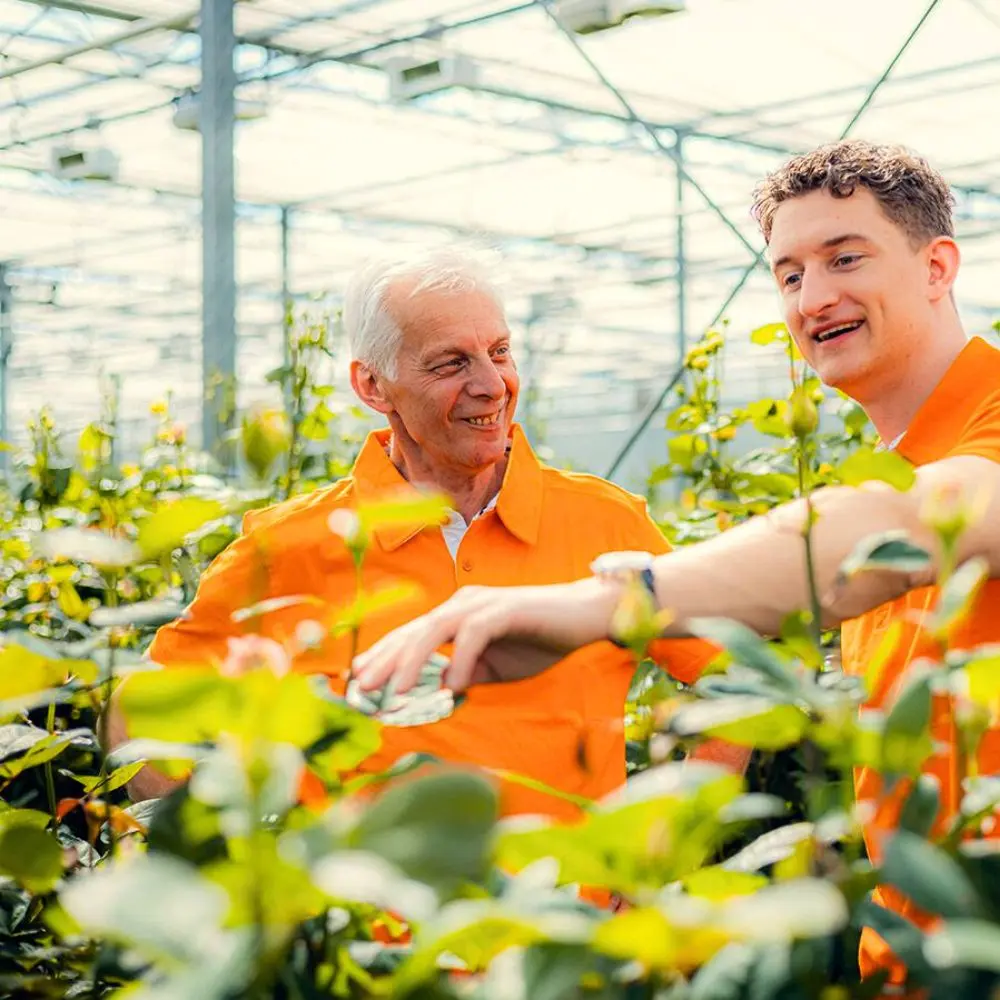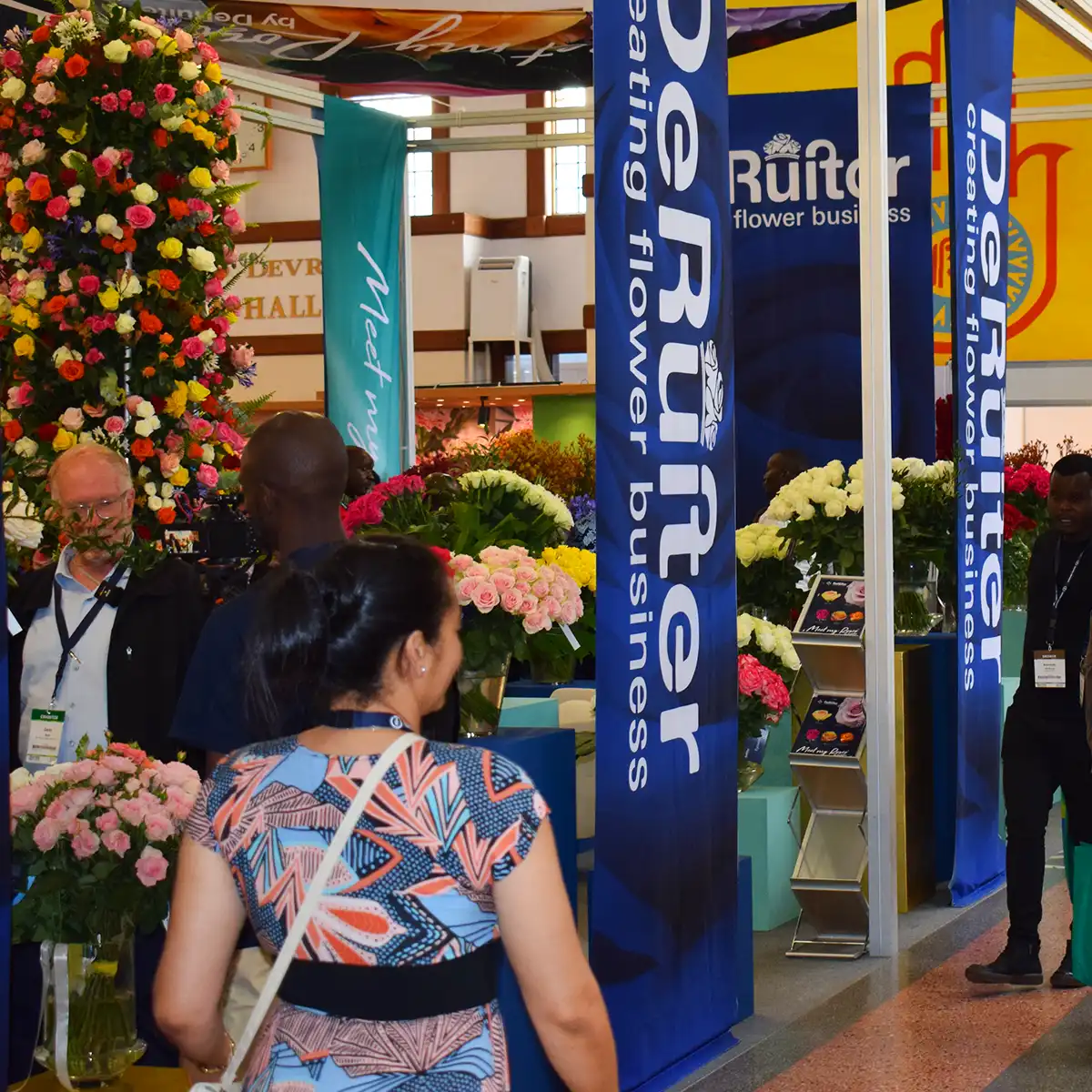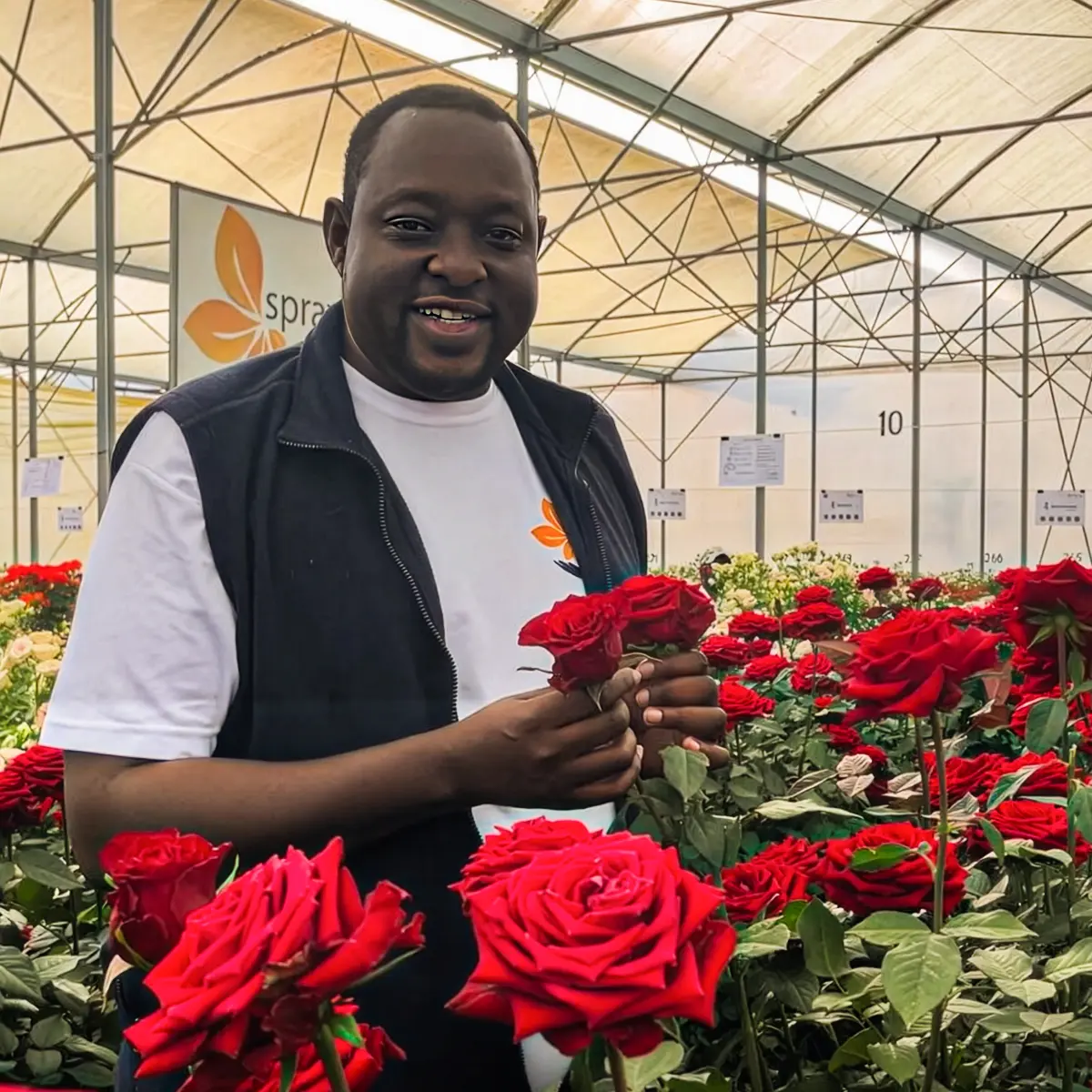For a client, you want to be assured of reliability, quality, and consistent supply of your flowers whenever needed. Our guest this week on the 10 questions on Thursd thrives in this field. Claris Wanjohi, the global export manager at Wafex Kenya talks about her floral career journey, including working at Wafex to ensure you get the best of Kenyan flowers weekly.
Discover her approach to stressful situations and motivations in daily work life. In addition, Claris will be attending the IFTF next week. If you would like to meet her and discuss Kenyan flowers with her, be sure to get in touch.
Question 1
For those who don’t know you, who are you, and what do you do?
"I am Claris Wanjohi, married, mom to three boys, and a flower lover. I am a trained journalist but never got to work in the media industry though. Started my floral career with a rose breeder, Van Kleef in Kenya. At first, it was a way to keep busy before I got into the media houses, but it quickly grew into a passionate affair I carry till today. I then joined Harvest Flowers to be part of their packhouse staff, Sales and Marketing at Subati Flowers , and eventually landed into sales and logistics at Upendo Flowers in Dubai.
Currently, I am the global export manager for Wafex Kenya, focused on sourcing and delivering all your floral needs from the Kenyan market."

Question 2
What is so special about your job?
"There are growers, core growers who we work with 52 weeks a year, and many different shipping agents, from clients who are doing either Cost, Insurance, and Freight (CIF) to Free on Board (FOB).
The diverse clients that we serve globally with these players attached to one sale, you do not know where the excitement will be for the day, will the grower have a quality issue and be unable to supply/will the airline have an offload leaving me stuck with thousands of boxes? Or will the client decide to cancel when the shipment is already packed? It's an exciting time I tell you.

But also, someone might be looking for a certain flower for their wedding and you manage to deliver in time, fresh, and in the right color. The happiness attached to this sale is something unimaginable. And we get to make friends and connect with extraordinary people sharing the same love of flowers. We are in the business of selling laughter and love."
Question 3
Are there any specific challenges or obstacles you’ve faced at work, and how did you overcome them?
"Obstacles in this fast-paced industry are many and as you grow you get to anticipate them and get ahead of them. I know when the weather is wet and rainy, quality issues like botrytis are unavoidable. So Quality management and inspection at the airport are increased to ensure all varieties from each farm are sampled.
It might be a very tasking process but it ensures our clients receive the best product out there. Another challenge is the ever-present risk of flight delays/ sharp increases in the high season. I get around this issue by personalizing destinations and making sure the clients are aware of the increases in time.

Also, market dynamics, changes in trends, and preferences can affect planning. Say, for example, I am anticipating the wedding season in Australia will go with earth-tone rose colors and we have planned growing programs around this, suddenly a designer debuted a striking summer flower bouquet which is all the brides of the moment want. So I now have to find the summer flowers and also find a market for the earth-tone roses.
Having an experienced buying/sales team/quality team is a huge plus for challenges such as this because they will help ease anxiety from the client and still sell the prior booked tones. An efficient team is the oil that keeps the wheels turning."
Question 4
What are the threats in the industry, and if so, do you have any solutions for them?
"I have seen an upsurge in the media about a ban on flowers, especially stimulated by the sustainability politics. I think it is vital for consumers to also understand the other side of the coin. The people involved in growing and caring for these flowers before they reach the florist/supermarkets. (people just want to go with the wave of the day which is a dangerous thing). Some of these voices need to visit African farms and see how our growers are doing everything they can to use sustainable farming practices. They also need to see these same organizations have initiatives to support the staff like being members of fair trade which gives back directly to the livelihood of staff and the surrounding community. It seems to me that the ban would be acting on information from one side of the coin. Sustainability is important, but that doesn't mean we tear down years of sustainable efforts already realized in favor of the few.

We also have some costs levied on growers and exporters which translates to additional cost per stem for us buyers and making the business environment very uncertain and very costly in the end. The decision-makers need to consult the growers and exporters more on these costs and policy changes before so that there are consultative and agreed-upon discussions, that translate to a win-win for everyone.
Question 5
How has technology like e-commerce platforms or digital marketing affected your industry, which strategies have you employed to stay competitive?
"E-commerce has its pros and cons for us. It makes work easier sometimes because sometimes the clients can buy off the web shops, easier and straightforward in most cases as a buyer will only buy what is available on offer.
The flip side is it removes the element of human connection to a point. I love calling up the clients and catching up: "How is the weather in the UK at the moment, any sun yet? No? Well, you should plan a trip to Kenya, the weather here is amazing." I live for such kinds of conversations and connections with my clients.

When you talk to your clients, you get to understand market trends, and preferences, in this way, I can plan ahead. So even with E-commerce making things easy for the buying team, I make sure to always have time to catch up with my clients. My favorite saying is 'people do business with people they like', so if the market is on my friends' list as a global supplier, I will always have the business."
Question 6
Who (in or outside the floral industry) is an inspiring example to you? And Why?
"At every level of my career, I have had many examples of amazing characters who stood out for me and helped shape and mold me into this version of myself.
I worked with a lady who is the owner of several farms in Kenya today. What was inspiring for me and still is today, is that she knew every single department and what was ongoing, the market, and what was selling most, she was involved in all parts of the business. As a thriving business mogul, mother, and as a female in Kenya this was amazing to see.
My director Craig Musson is the biggest role model for me currently, building a business that spans three decades and still flourishes is amazing if you look at it in depth. I look at what it has taken to build a brand so big that people genuinely want to be associated with, is something extraordinary.

Inspiration comes from many directions. I have a junior staff who came to us as a casual worker. He has taken himself back to school at the age of 40+, taught himself computer literacy, and now is one of the most important personnel in the logistics department, doing quality inspection and documentation. This kind of drive to want to better oneself despite the circumstances is an inspiration to me in a big way."
Question 7
How do you handle stress or difficult moments in your life?
"My husband is my voice of reason, I always share my difficulties with him and he will always have an idea on how to solve the situation or at least a different perspective on it. Most importantly if we do not find a solution then, he will tell me to sleep on it or breathe, and ultimately what looks like a mountain yesterday will be a hill tomorrow.

Delayed reaction, if you can delay the answer or the action in times of great stress then it will get easier. I am also a believer and I try to live by the guidelines of the good book. 😊
Also, things get easier with age.😊"
Question 8
What has been the best (floral or non-floral) news for you lately, or of the last year?
"In the last few years, Kenyan growers have embraced summer flower growing /niche flowers. I love that I can now offer Kenyan hydrangeas that are as good as their Colombian counterpart. I can offer similar quality out of Kenya as our South American colleagues because our growers are bettering themselves every day to be competitive in different markets globally."
Question 9
Which is your favorite flower/plant and why is it good for you?
"I think it's a tie between the Delphinium and the carnation. I look at how tall and proud the Delphiniums are and their ability to change a florist's whole design. The carnation is because I think of it as a chic/elegant one, with diverse colors and many ruffles, looks like a rose, but way better I think.

Am totally in love with the carnations. Also this changes from time to time, sometimes my best sellers are my favorite. 😊 All am saying is it's hard to choose.
Question 10
What are you doing this weekend?
"We live away from the city and My boys are out of school so we are going hiking and maybe doing some gardening, and taking the dogs out for a stretch.
I need also to plan for my trip to the Netherlands for the IFTF. I have some last-moment packing to do. I am looking forward to catching up with our clients and of course, meeting new prospects, see you soon."

All pictures courtesy of Claris Wanjohi.

